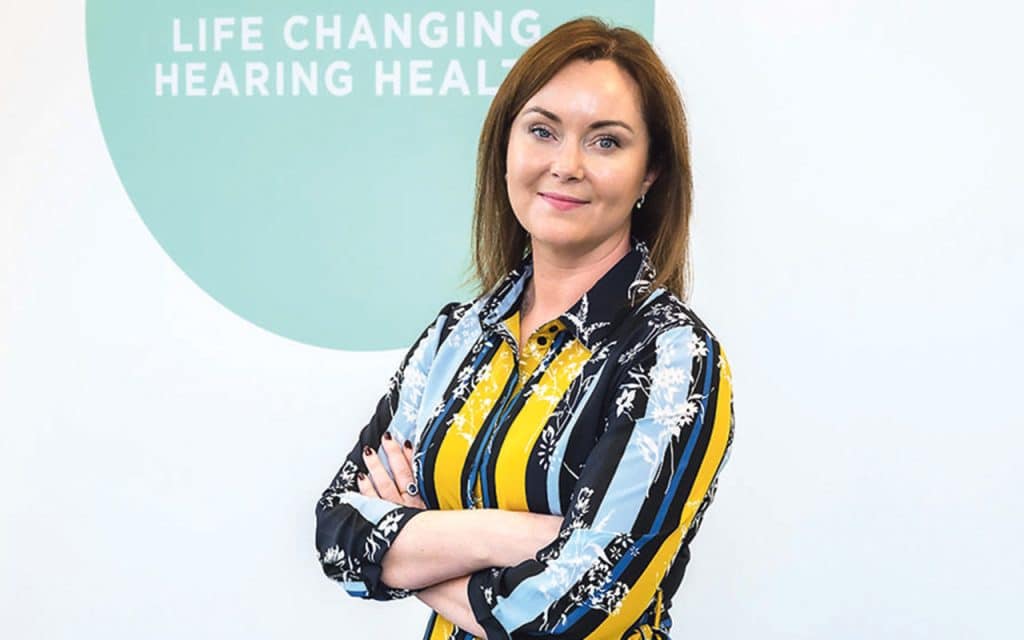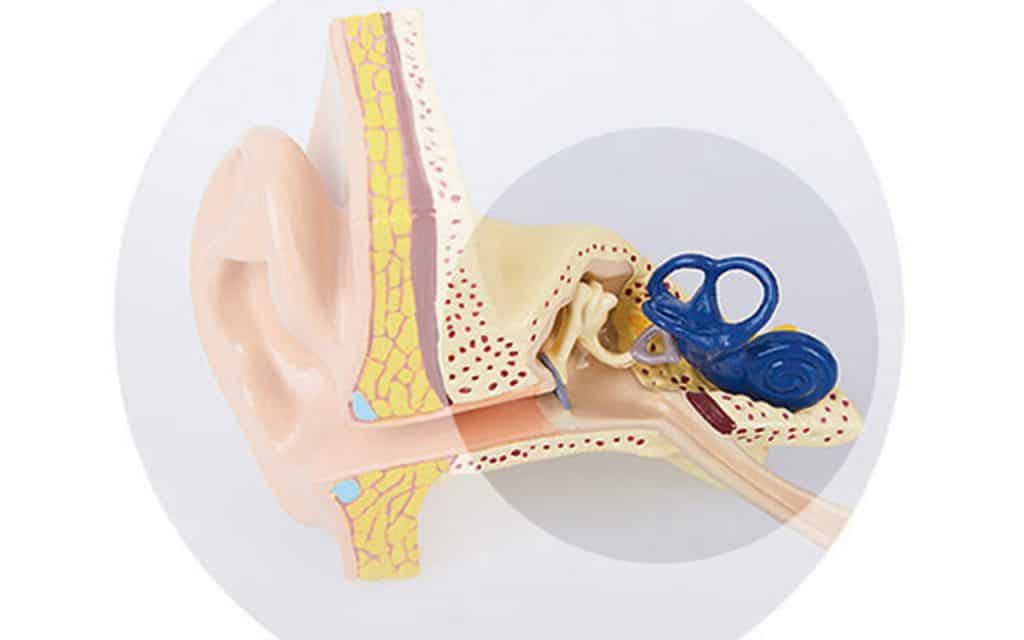Sarah Sheehan is Hidden Hearing’s Chief Audiologist and Product, Compliance and Audiology Trainer within their HR, Learning and Development Department. She ensures Hidden Hearing audiologists possess a robust foundation of knowledge and uphold best global audiological standards.

As we grow older, many of us begin to notice subtle changes in how we hear the world around us. Age-related hearing loss, known medically as presbycusis, is a natural part of the ageing process. In Ireland, one in twelve people experience hearing loss, rising to 50 per cent in the over-70s. Despite its prevalence, hearing loss still seems to carry a stigma that we typically don’t associate with other sensory conditions. But the good news is that there are many ways to protect your hearing, and continue living a vibrant, connected life.
Presbycusis is a gradual loss of hearing that typically affects both ears. It may begin as early as our 40s or 50s and becomes more noticeable over time. It’s one of the most common health conditions in older adults – and one of the most manageable.
The most common cause is simply the natural ageing process, especially changes within the delicate structures of the inner ear. Other contributing factors include: family history (genetics); long-term exposure to loud noise; certain medical conditions; medications; smoking.
Men are more likely to lose the ability to hear high-pitched sounds while women are more likely to experience difficulty with lower-pitched sounds. These subtle differences can affect how we understand speech, especially in group settings or noisy environments.
High-frequency hearing loss makes it harder to hear high-pitched sounds like birdsong, alarms, or consonants in speech. You might feel like people are ‘mumbling’.

Low-frequency hearing loss affects deeper sounds – such as men’s voices or bass notes in music. These sounds may seem quieter than they actually are.
Everyone’s experience is unique, but some of the common signs of age-related hearing loss include:
• Struggling to follow group conversations – especially with background noise;
• Sounds feeling too loud or startling;
• People seeming to mumble more often;
• High-pitched voices are harder to hear than lower ones;
• Often having to turn the TV volume up;
• A constant ringing or buzzing in the ears (tinnitus).
As mentioned above, tinnitus is becoming increasingly common. It’s often described as a ringing, buzzing, or hissing sound in the ears with no external source. Around 15-20 per cent of the population experiences tinnitus, and it’s now being reported more frequently among younger adults as well.
Tinnitus is commonly believed to result from damage to the tiny hair cells in the cochlea – part of the inner ear responsible for detecting sound – and the brain’s attempt to adapt to the resulting loss of auditory input.
Tinnitus can be temporary, but in many cases, it becomes a persistent and distressing condition that significantly affects quality of life. While there is no cure for tinnitus, there are ways you can manage it and reduce its impact on your life.
It’s important to point out that hearing loss doesn’t have to hold you back. At Hidden Hearing, we take the time to understand what your hearing means to you – and what it means to lose it. Often, it can take years for people to address their hearing concerns, but we know through our customers’ experiences that acting on hearing loss is far easier than living with it. We continuously strive to deliver richer experiences through groundbreaking technology and personalised, world-class hearing care. Our revolutionary hearing aids are more comfortable and discreet than ever, helping you stay connected to the people and activities you love.
Although age-related hearing loss cannot be reversed, there are several proactive steps we can take to protect and preserve our hearing as we age. Limiting prolonged exposure to loud noises is crucial, as is using ear protection such as earplugs or noise-cancelling headphones in loud environments. Lifestyle choices also play a role; quitting smoking, for instance, can support overall ear health. In addition, it’s important to address common issues like earwax buildup by having it removed professionally rather than attempting home remedies. Seeking prompt medical advice for ear infections or any concerns can also help prevent further deterioration.
Recognising and treating hearing loss early can make a profound difference in maintaining a high quality of life. Timely intervention not only improves communication and daily functioning but also helps reduce the risk of associated health issues. Untreated hearing loss has been linked to anxiety, fatigue, social isolation, and depression. Furthermore, addressing changes in your hearing can delay the onset of cognitive decline.
By taking a proactive approach to your hearing, and having your hearing tested, you can establish a baseline of your hearing and better monitor any changes. Ageing positively means staying engaged, informed, and proactive. Taking care of your hearing is just one of the many ways to ensure you can keep living life to the fullest and keep being you.
At Hidden Hearing, we don’t just provide hearing aids; we focus on comprehensive care and are committed to raising awareness and empowering individuals to make informed decisions about their hearing health. If you or a loved one have concerns about your hearing, call into us in Bandon, Bantry or Clonakilty, or visit our Cork city clinics on Marlboro Street and Blackrock Hall Primary Care Centre.
Visit hiddenhearing.ie or phone us on 1800 370 000 and arrange free hearing test and thorough consultation with our local expert audiologists.


